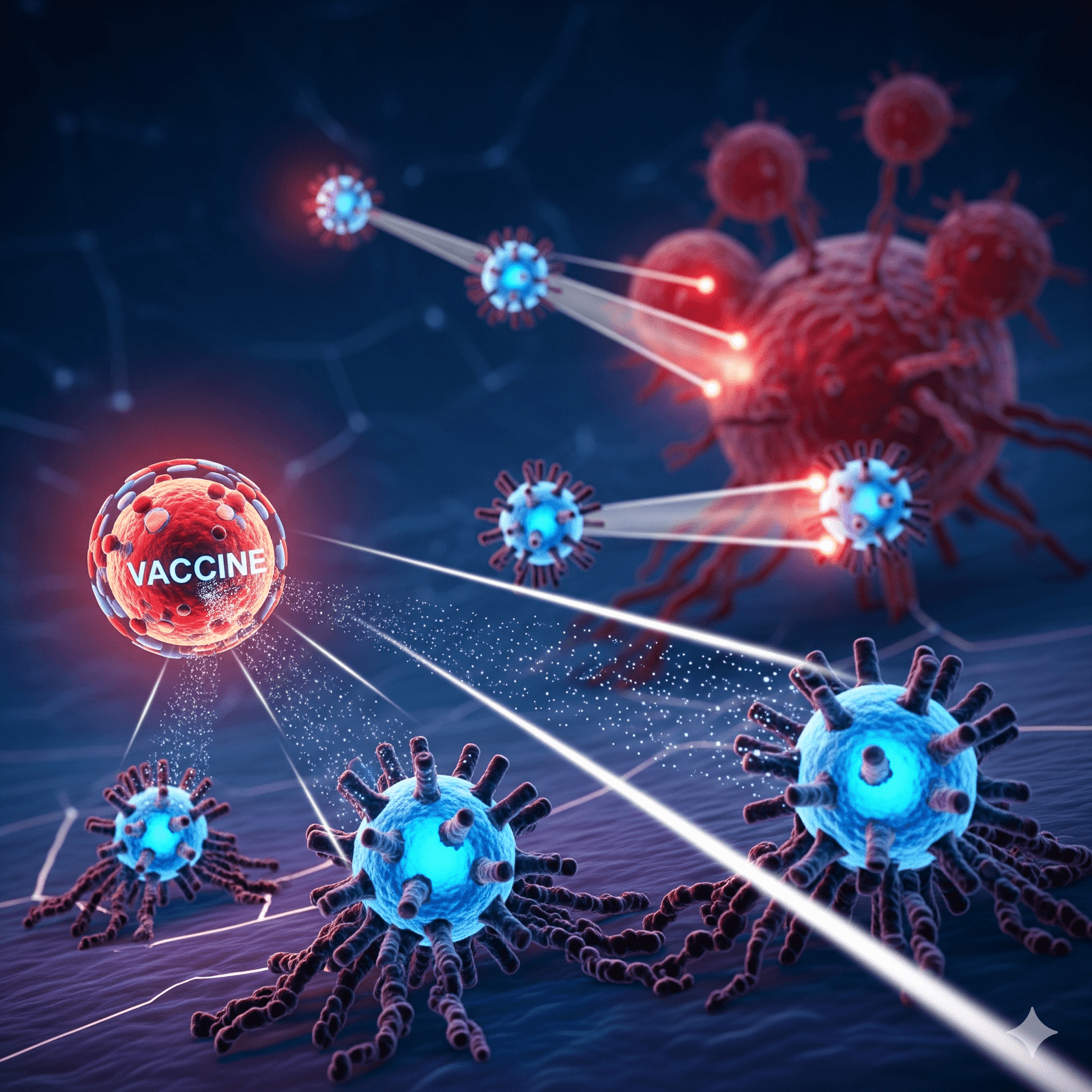Cancer, a disease as old as humanity itself, has long presented one of medicine’s most complex challenges. For decades, the primary tools against it were surgery, chemotherapy, and radiation – often aggressive treatments with significant side effects. However, we are now entering a revolutionary era, characterized by unprecedented scientific understanding and innovative therapeutic approaches, particularly in the realm of cancer vaccines and medical advances.
Redefining Vaccines: Teaching the Body to Fight Cancer

Traditionally, vaccines prepare our immune system to fight external invaders like viruses. Cancer vaccines, however, are a paradigm shift. They are a form of immunotherapy, designed to train the body’s own immune system to recognize and attack cancer cells.
There are two main types being explored:
- Preventive (or Prophylactic) Vaccines: These work like traditional vaccines by protecting against viruses that can cause cancer. The most successful example is the HPV vaccine, which protects against the human papillomavirus, a leading cause of cervical and other cancers.
- Therapeutic (or Treatment) Vaccines: This is where the most exciting research is happening. These vaccines are given to people who already have cancer. They work by introducing a specific cancer marker (an antigen) to the immune system, essentially putting a “face” to the enemy. This teaches immune cells, like T-cells, to hunt down and destroy tumor cells that were previously hiding in plain sight.
Personalized Medicine: The mRNA Revolution

One of the most significant breakthroughs in therapeutic cancer vaccine development comes from mRNA technology, the same innovation behind some of the most effective COVID-19 vaccines.
Here’s how it works in simple terms:
- Biopsy and Sequencing: A sample of a patient’s tumor is taken, and its unique genetic makeup is analyzed.
- Identifying Neoantigens: Scientists identify specific mutations (neoantigens) that are present only on the cancer cells, not healthy cells.
- Creating the Vaccine: An mRNA vaccine is custom-built for that individual patient. It contains the genetic instructions for the patient’s own unique neoantigens.
- Training the Immune System: When the vaccine is administered, the patient’s cells use these instructions to produce the harmless cancer markers. The immune system sees these markers, recognizes them as foreign, and launches a powerful, highly targeted attack against any cell in the body that displays them – meaning, the cancer cells.
This approach is the pinnacle of personalized medicine, creating a bespoke treatment for each patient’s specific cancer.
The field of cancer vaccines is advancing at a breathtaking pace. While many treatments are still in clinical trials, the results are generating significant excitement in the scientific community.
Most notable recent advancements
- Promising Results in Melanoma and Pancreatic Cancer: Major pharmaceutical companies like Moderna and BioNTech have ongoing late-stage clinical trials for personalized mRNA vaccines. When combined with existing immunotherapy drugs (checkpoint inhibitors), these vaccines have been shown to significantly reduce the risk of cancer recurrence in high-risk melanoma patients. Similar personalized vaccine trials are showing early promise in treating pancreatic cancer, one of the most difficult cancers to manage.
- “Off-the-Shelf” Therapeutic Vaccines: While personalized vaccines are powerful, they are complex and time-consuming to create. Researchers are also making progress on “off-the-shelf” vaccines that target antigens common to many patients with a specific type of cancer (e.g., certain lung or colorectal cancers). This approach could make vaccine treatments faster and more accessible.
- Combination Therapies: The consensus is growing that vaccines work best not in isolation, but as part of a combination strategy. Recent studies have focused on pairing therapeutic vaccines with other treatments like CAR T-cell therapy and checkpoint inhibitors to create a multi-pronged and more effective attack against tumors.
Cancer vaccines are just one part of a larger revolution in oncology. Other game-changing advancements include:
- CAR T-Cell Therapy: This involves taking a patient’s own immune T-cells, genetically engineering them in a lab to be super-charged cancer fighters, and then reinfusing them into the body. It has shown remarkable success, particularly for blood cancers like leukemia and lymphoma.
- Checkpoint Inhibitors: Cancer cells often produce proteins that act like a “brake” on the immune system, telling it not to attack. Checkpoint inhibitors are drugs that release this brake, unleashing the immune system to do its job.
- Liquid Biopsies: This is a revolutionary diagnostic tool. Instead of a surgical biopsy, a simple blood test can detect tiny fragments of DNA shed by tumors. This allows for earlier cancer detection, monitoring treatment effectiveness, and watching for recurrence without invasive procedures.
The Road Ahead: Hope and Hurdles
While the future of cancer treatment is brighter than ever, significant challenges remain. Developing personalized vaccines is complex and expensive, and not all cancers respond equally well to immunotherapy. However, the pace of discovery is astonishing.
Researchers are working to make these treatments more effective for more types of cancer, combine different therapies for a multi-pronged attack, and make them more accessible to patients worldwide. We are moving away from a one-size-fits-all approach and toward a future where cancer treatment is as unique as the individual receiving it. The fight is far from over, but the arsenal of hope has never been stronger.
References and Further Reading
For those interested in diving deeper into the science, here are some reliable sources from leading global health organizations:
- National Cancer Institute (NCI): Cancer Vaccines
- A comprehensive overview of how both preventive and therapeutic cancer vaccines work, from one of the leading U.S. government health agencies.
- Link: https://www.cancer.gov/about-cancer/treatment/types/immunotherapy/cancer-vaccines
- Cancer Research UK: How do mRNA cancer vaccines work?
- A detailed and easy-to-understand explanation of the exciting potential of mRNA technology in creating personalized cancer treatments from a major UK charity.
- Link: https://news.cancerresearchuk.org/2023/12/13/how-do-mrna-cancer-vaccines-work/
- The Canadian Cancer Society: Immunotherapy
- Provides information on various types of immunotherapy, including therapeutic vaccines, relevant to a Canadian audience.
- Link: https://cancer.ca/en/treatments/treatment-types/immunotherapy
Read more blogs at : Okjango.com


